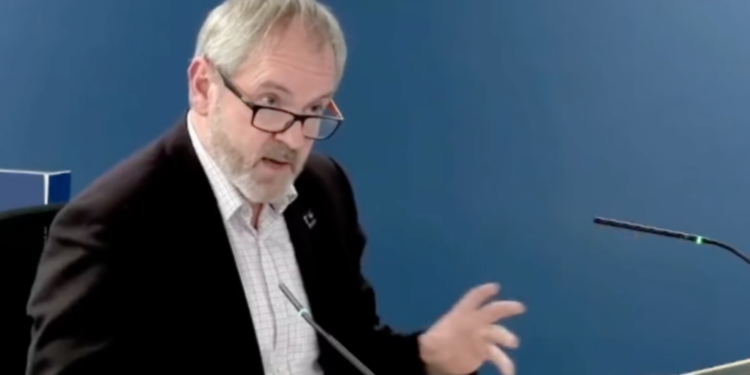Was lockdown worth it? That’s the basic question the Covid Inquiry should be asking, says Lord Frost in the Telegraph. But it’s increasingly clear that it has predetermined the answer and is just going through the motions. Here’s an excerpt.
I felt vindicated this month when I heard Prof. Mark Woolhouse say – in one of the few revealing points to emerge so far from the sorry spectacle of the Covid Inquiry – that “in the build-up to that November lockdown in England, as far as I could see, SAGE was simply telling the Government it should lock down … There’s good evidence now that that lockdown was not strictly necessary … I think Government was not given, in the build-up to that lockdown, the full range of policy options it should have been given.”
Prof. Woolhouse makes this general point on two or three occasions. You might think it interesting enough to deserve discussion. But no. “Thank you Professor.” And counsel moves on.
I am afraid that it seems to many of those watching the hearings or reading the transcripts of the inquiry that its Chair, Lady Hallett, and the lead counsel, Hugo Keith, are basing their approach on a particular, preconceived, view of the story of the pandemic lockdowns. That is that Covid was obviously dangerous, that lockdowns were the correct solution to the problem, and that the only real question is the timeliness of the Government’s actions, not their merits.
That is certainly the consensus view. It is convenient for many because it allows attention to be focused on the failings of Boris Johnson personally, rather than on those of the Government machine and the people who ran it. That doesn’t make it correct. I have a view on the subject from my own experience – which is that we would have been better off following the Swedish approach – but I don’t claim a monopoly on wisdom. I am willing to be proved wrong. But sadly this inquiry seems unlikely to help me in this one way or the other.
That’s obvious from the direction of questioning of other main witnesses. So far there has been no serious examination of the modelling and why it turned out, repeatedly, to be so wrong. Prof. Neil Ferguson refers briefly to Sweden in passing in his written evidence, but only to dismiss it as a comparator – yet he was not asked about this at all.
Prof. Carl Heneghan tried to bring Sweden into the discussion, but unsuccessfully; the lead counsel seemingly more interested in sneering at his intellectual credentials. And we can’t be sure that Lady Hallett even understands the concept of trade-offs, since, on the issue of masking, she asked one witness: “I’m sorry, I’m not following, Sir Peter. If there’s a possible benefit, what’s the downside?”
And who knows when this inquiry will actually conclude? Let’s not forget that it took Lord Saville 12 years to investigate the events of 15 minutes in Londonderry in 1972, so perhaps we should be looking to the next century before the inquiry’s vast, meandering, and often irrelevant terms of reference have been properly considered.
All this time and effort would have been better spent on focusing on the only important question, the one thing I really want to know. It is whether lockdowns were the right response to a disease with a fatality rate of somewhere between 0.1% and 0.5%.
If we can be confident of the answer to this question, then if we are hit again, we will have a better idea of what to do. But all the efforts to allocate blame, all the email and WhatsApp archaeology, all the rush to point the finger, just make it less likely we will get that answer. Key witnesses will look to protect themselves. No one is going to admit willingly, “in retrospect, I think I got that wrong”. Yet without that we will never discover what was right.
Worth reading in full.












To join in with the discussion please make a donation to The Daily Sceptic.
Profanity and abuse will be removed and may lead to a permanent ban.